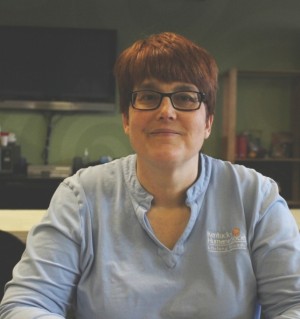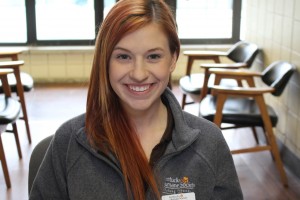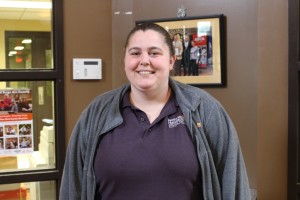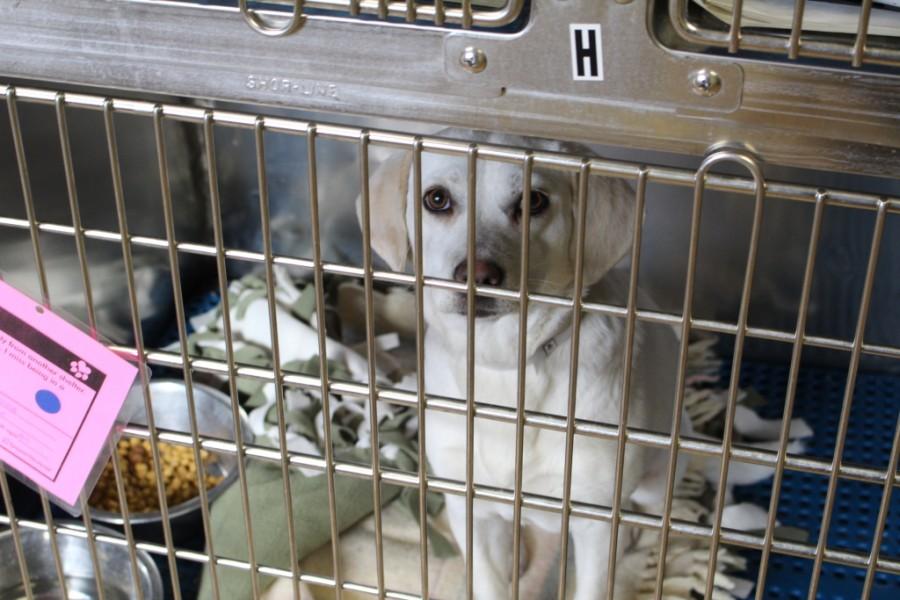Kentucky Humane Society Focuses on Saving Lives
March 11, 2015

Beth Haendiges

Megan Decker
Stitched in the grey jacket and the purple shirt are the words “Kentucky Humane Society — Lifelong Friends.” Thousands of animals would agree. “We saved 6,000 something lives last year, and we couldn’t do that without volunteers.” This powerful statement creates a sense of pride within the Kentucky Humane Society, a no-kill organization that attempts to save animals and adopt them out to families.
The KHS is a private, non-profit agency that has a robust volunteer program, which PR/marketing manager Beth Haendiges describes as “amazingly important.”
The volunteers do various jobs, such as walk dogs, socialize cats, assist with adoptions, provide care for pets at the S.N.I.P. clinic (spaying or neutering), take photographs of pets, provide clerical assistance, and work at fundraising events.

Jacquie Sanders
Jacquie Sanders, the main campus supervisor, said the Humane Society takes in about 7,000 animals a year. She said, “In July we average around 750.”
The employees at the Steedly Main Campus enjoy their jobs. Sanders described the most rewarding part of her job as “seeing that perfect adoption, seeing people that find the perfect animal, seeing the joy.”
In contrast, she said, the worst part is “seeing the animals returned, especially if they have been with us several months.”
Haendiges said the best part of the KHS for her is “seeing a dog or cat that is withdrawn come out of its shell and get adopted.”
Haendiges said she works for the KHS because “I wanted to do something that meant something in the world, because animals here have no voice of their own.”
Megan Decker said the hardest part of work at the KHS is “when we adopt out an animal and they come back.”
According to Haendiges, public perception of their work is positive but continued education is needed. She said, “We have to overcome the misconceptions that we are a kill shelter.”


